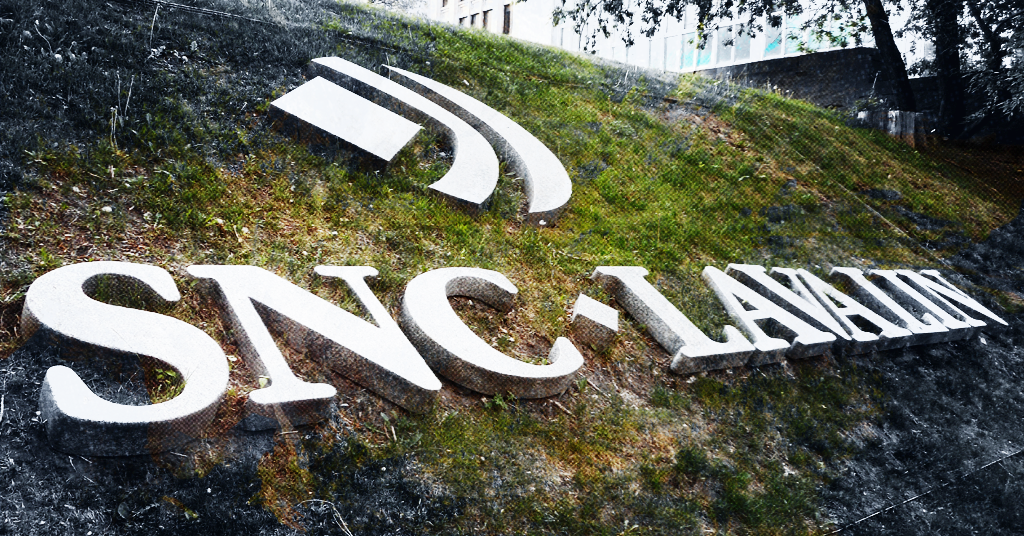
‘Near Monopoly’: Canada’s Economy is ‘Dominated’ By a Small Handful of Corporations, Experts Warn
Why Justin Trudeau’s SNC-Lavalin scandal is a sign of Canada’s deeper problem with power concentrated in the hands of corporations
There are 117 Canadian companies who currently appear on the World Bank’s list of 250 firms blacklisted from participating in projects around the world under the organization’s fraud and corruption policy.
Most are affiliates of SNC-Lavalin, the company at the centre of a growing scandal involving Justin Trudeau’s PMO and former Justice Minister Jody Wilson-Raybould, after Trudeau’s PMO reportedly pressured Wilson-Raybould to abandon corruption and fraud charges against SNC-Lavalin.
Thanks to companies like SNC-Lavalin, the Financial Post suggested Canada is fast gaining a reputation for being “home to the most corrupt companies in the world.”
But according to experts, the troubles facing SNC-Lavalin and Trudeau’s PMO are actually symptoms of an economy that has become dominated by a small handful of very powerful and very influential corporations.
The Near-Monopoly And The Government
Some commentators have suggested that if Trudeau’s Office pressured the justice minister into deferring prosecution of SNC-Lavalin, that would be understandable since SNC-Lavalin, a key player in federal contracts and an employer of thousands, is just too big to fail.
As the Canadian Press noted:
The chance that SNC could be barred from federal contracts has been a shock to the financial community, which widely expected the company to have its prosecution deferred.
But according to experts, that’s a worrying sign for Canada’s economy.
“SNC Lavalin is a near monopoly,” Calin Valsan, a business professor at Bishop’s University, told PressProgress.
“It’s a touchy issue,” Valsan said. “Is there any government interference? It’s possible. It is something normal? It’s a loaded term, but it does occur in every country and regime as attempts of the political to interfere.”
Going back to the Pacific Scandal that brought down Sir John A. MacDonald’s Conservative government, Valsan said Canadian history offers many examples of powerful businesses shaping Canadian politics.
“Canada has been the ultimate insider system for a very long time,” Valsan said.
With a large population and relatively undiversified economy, governments tend to bend to the will of corporate giants in order to “keep the economy stable.”
“Much of that has to do with the size of the Canadian economy. It’s a much smaller economy, so it’s easier for a few to dominate.”
Martin Pelletier, a portfolio manager at TriVest Wealth Counsel, told PressProgress “SNC-Lavalin has a very, very strong toe-hold” thanks to “government support.”
In a June 2018 column for the Financial Post titled “Our nation of oligopolies not good for consumers, but great for investors,” Pelletier noted key sectors of the Canadian economy – banking, telecommunications, energy – are each dominated by five or fewer juggernauts with very large market cap growth rates and equities tied to a lower standard deviation than their American counterparts.
“Looking at it again, I wouldn’t change that thesis,” Pelletier told PressProgress.
That echoes the observations of a recent book by Globalive CEO Anthony Lacavera and Kate Fillion who describe Canada’s economy as a corporate “oligopoly”:
“Six companies dominate the Canadian banking industry. Four companies dominate the internet-service-provider market. Three companies dominate English-language television broadcasting, the supermarket industry, and wireless telecommunications. A duopoly dominates the airline industry. And so on. Oligopoly players are fat and happy.”
On Canadian banks, Pelletier notes “five of them have 90% of the share. It’s like the gas stations where they’re magically the same price. Not good for consumers but good for the owners.”
As for energy, he noted three companies – Cenovus, Suncor and Canadian Natural Resources – more or less dominate, as well. And unless oil prices shoot up dramatically, he suggested the three big oil players will see an incentive to move closer together: “they will have to collaborate. They will need to stage the growth of their projects so they can avoid massive capital inflation or cost inflation.”
“We’re in a world of oligopolies,” Pelletier noted.
Likewise, Valsan said “there is a general trend of concentration of market share almost everywhere in the world, including Canada.”
“With monopolies it’s clear, eventually the economy comes to a stand still and … someone will have to break them up,” Valsan concluded.
“Or they become like governments.”
Our journalism is powered by readers like you.
We’re an award-winning non-profit news organization that covers topics like social and economic inequality, big business and labour, and right-wing extremism.
Help us build so we can bring to light stories that don’t get the attention they deserve from Canada’s big corporate media outlets.
Donate



